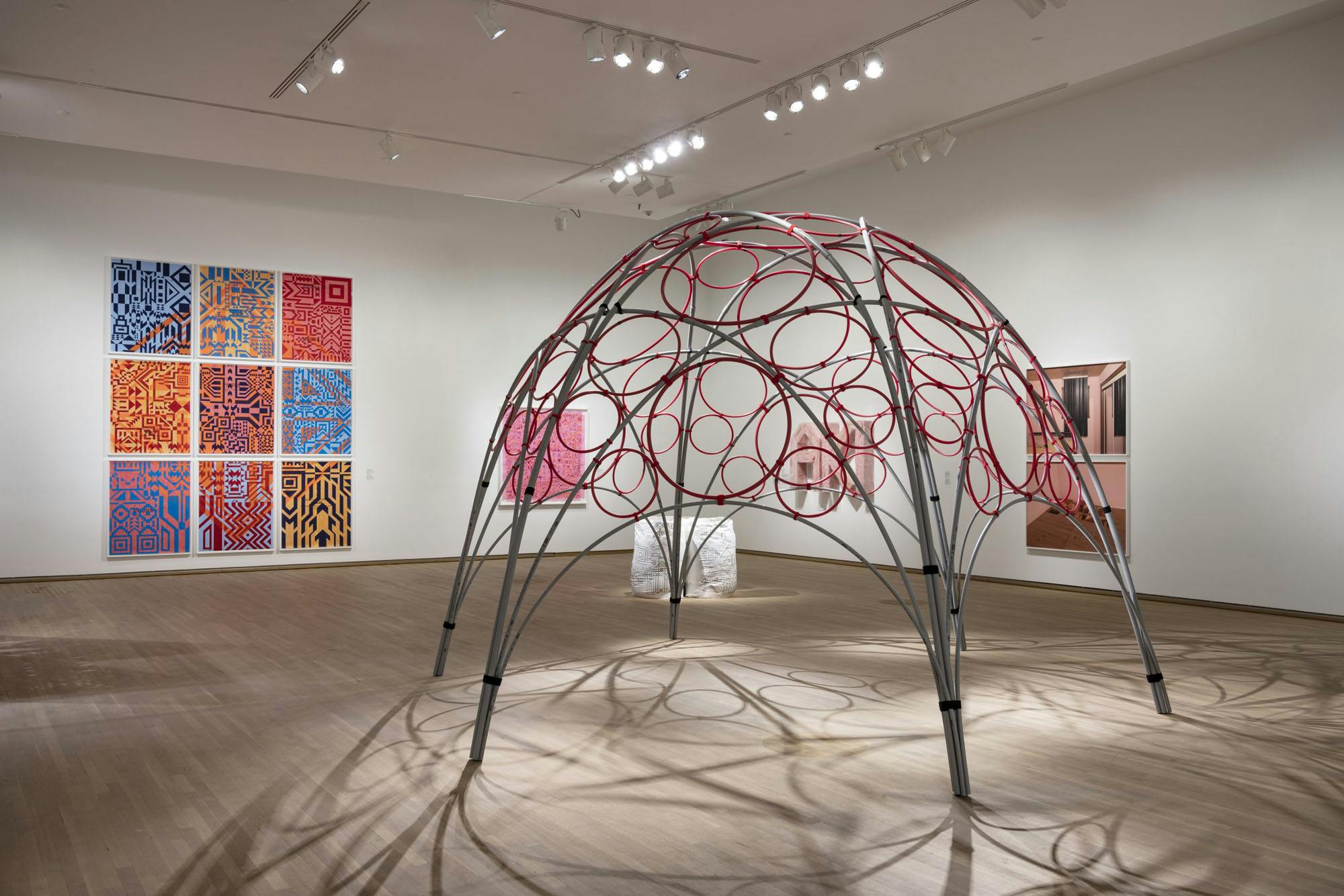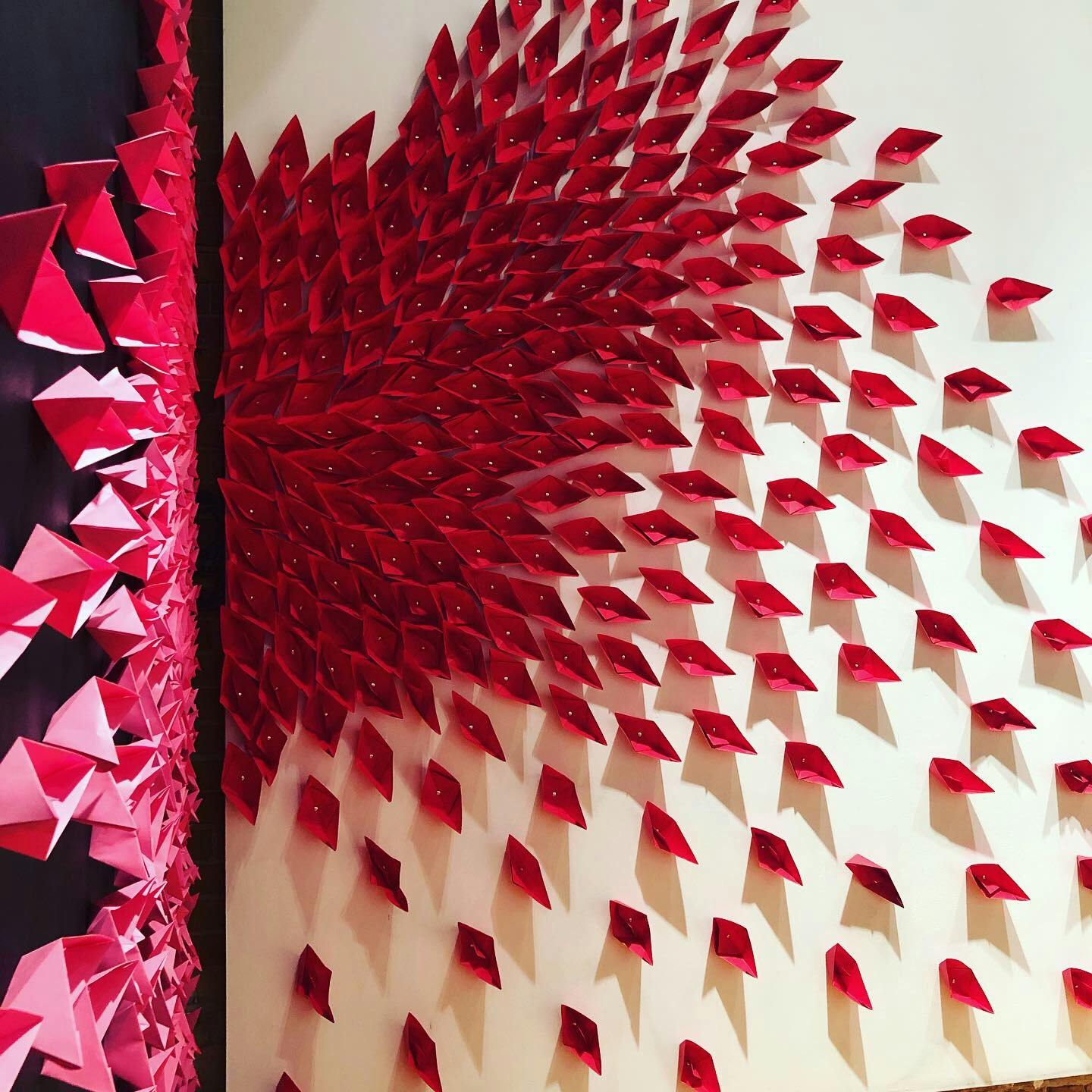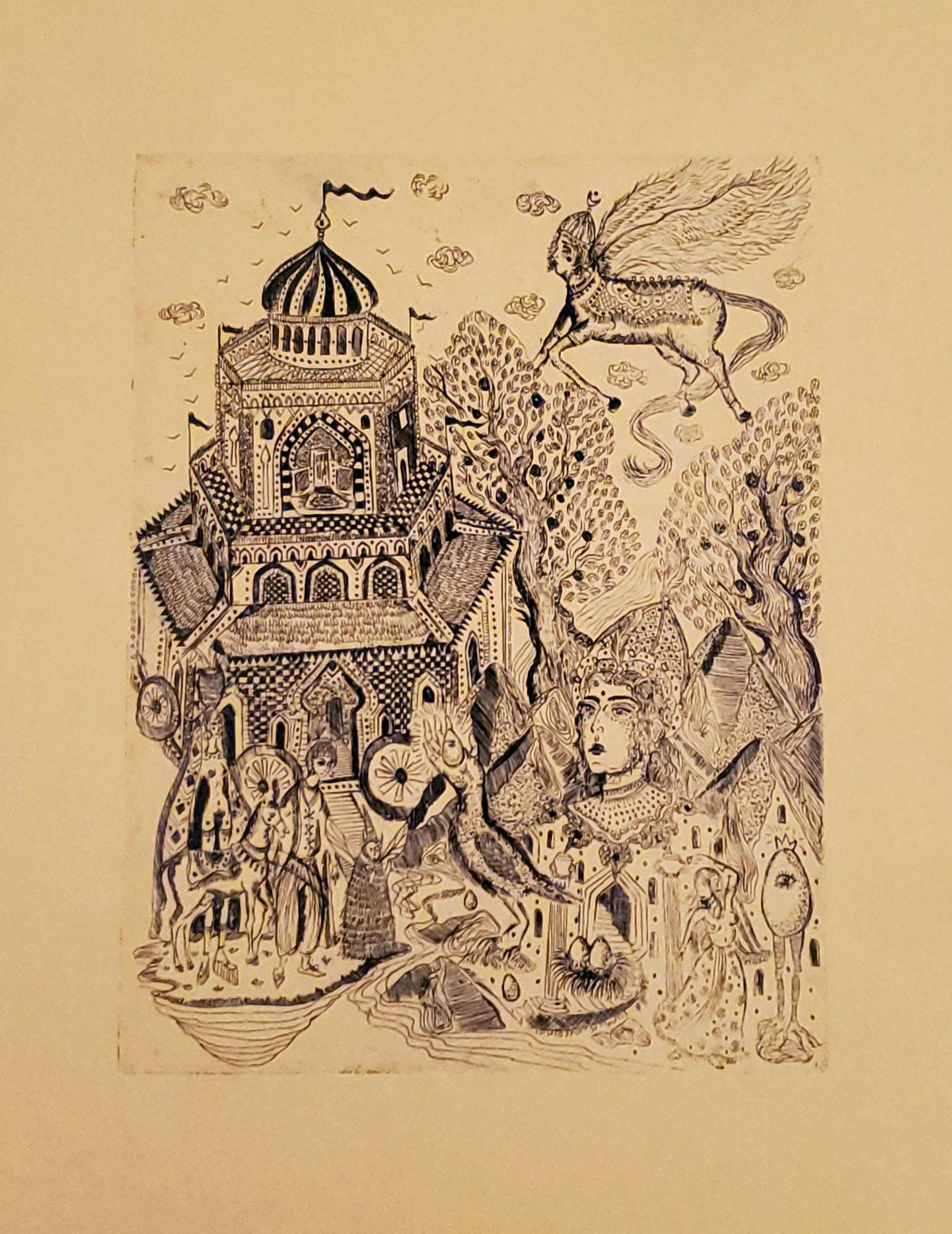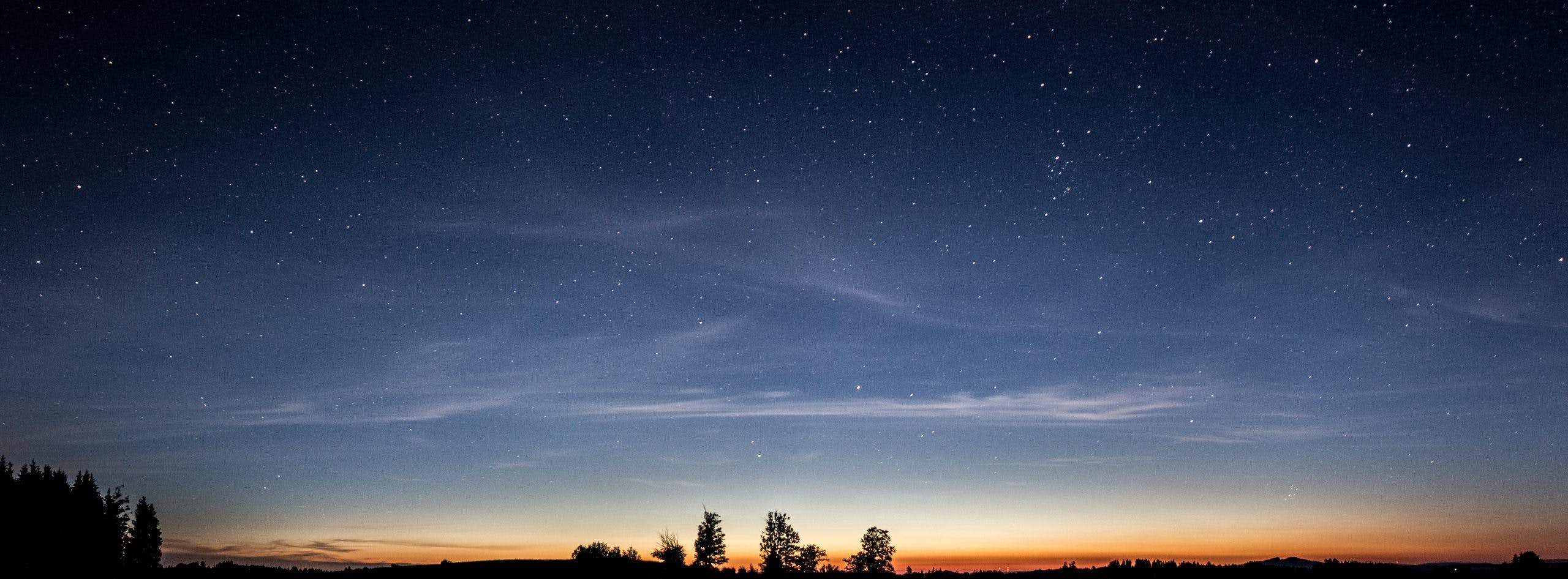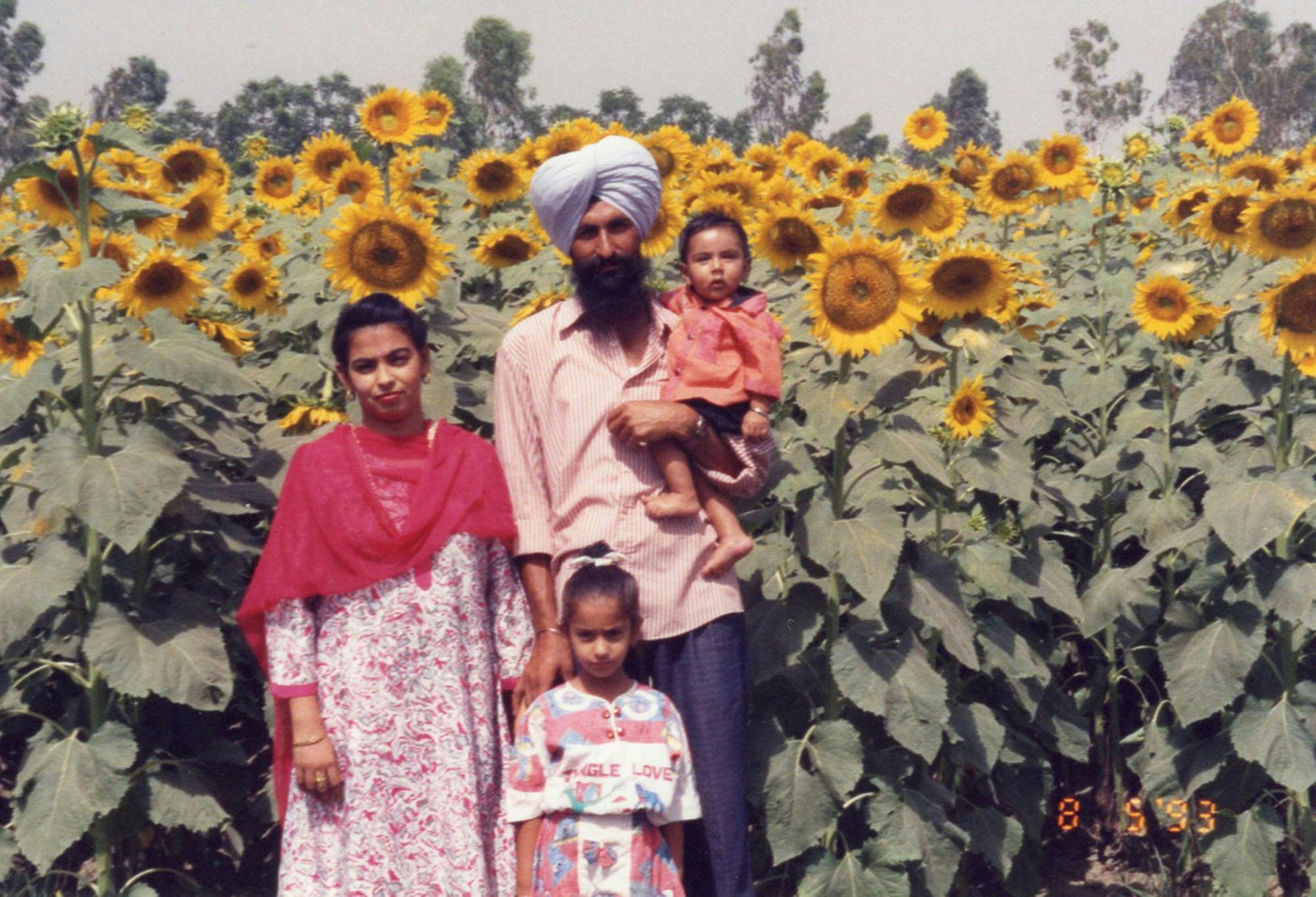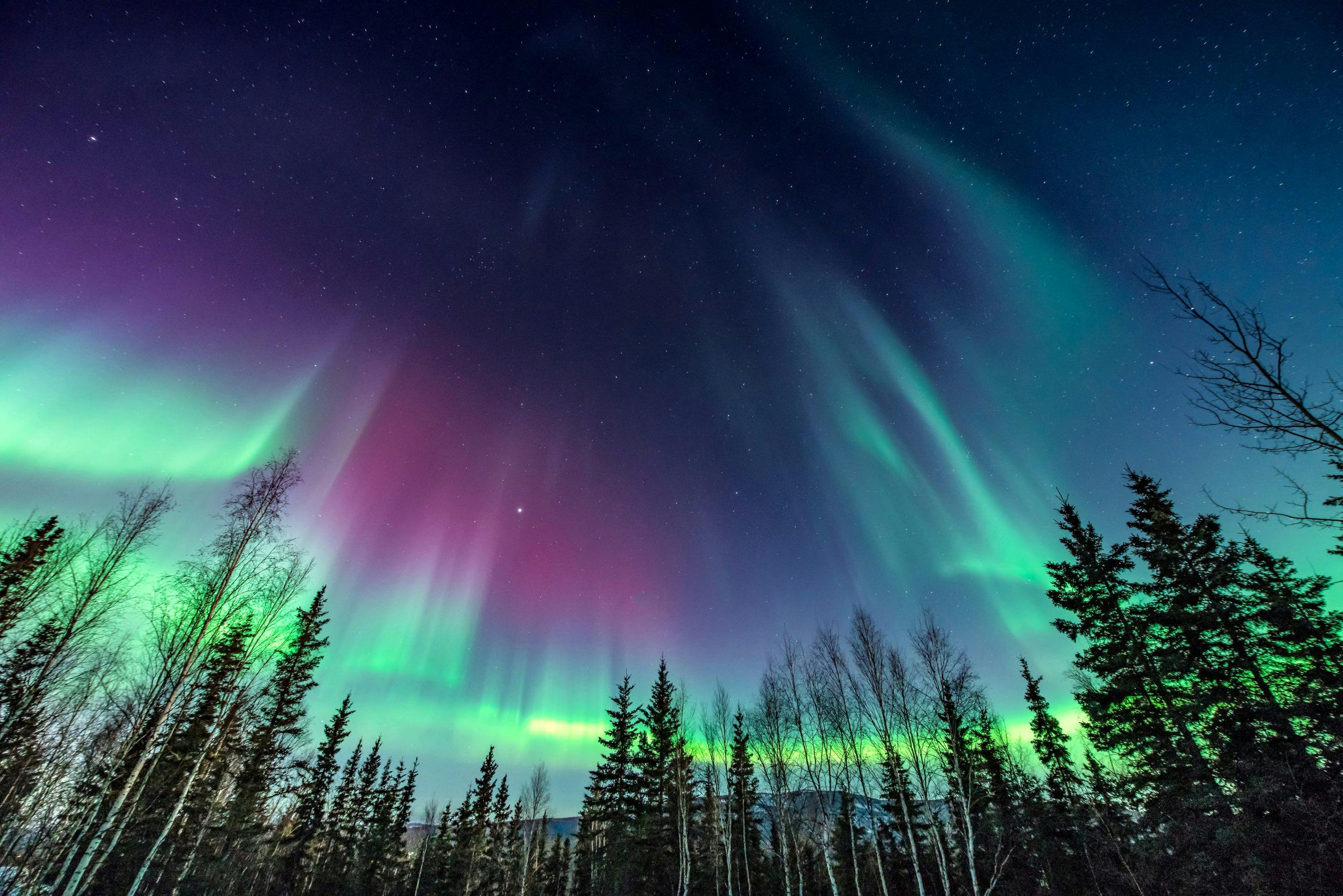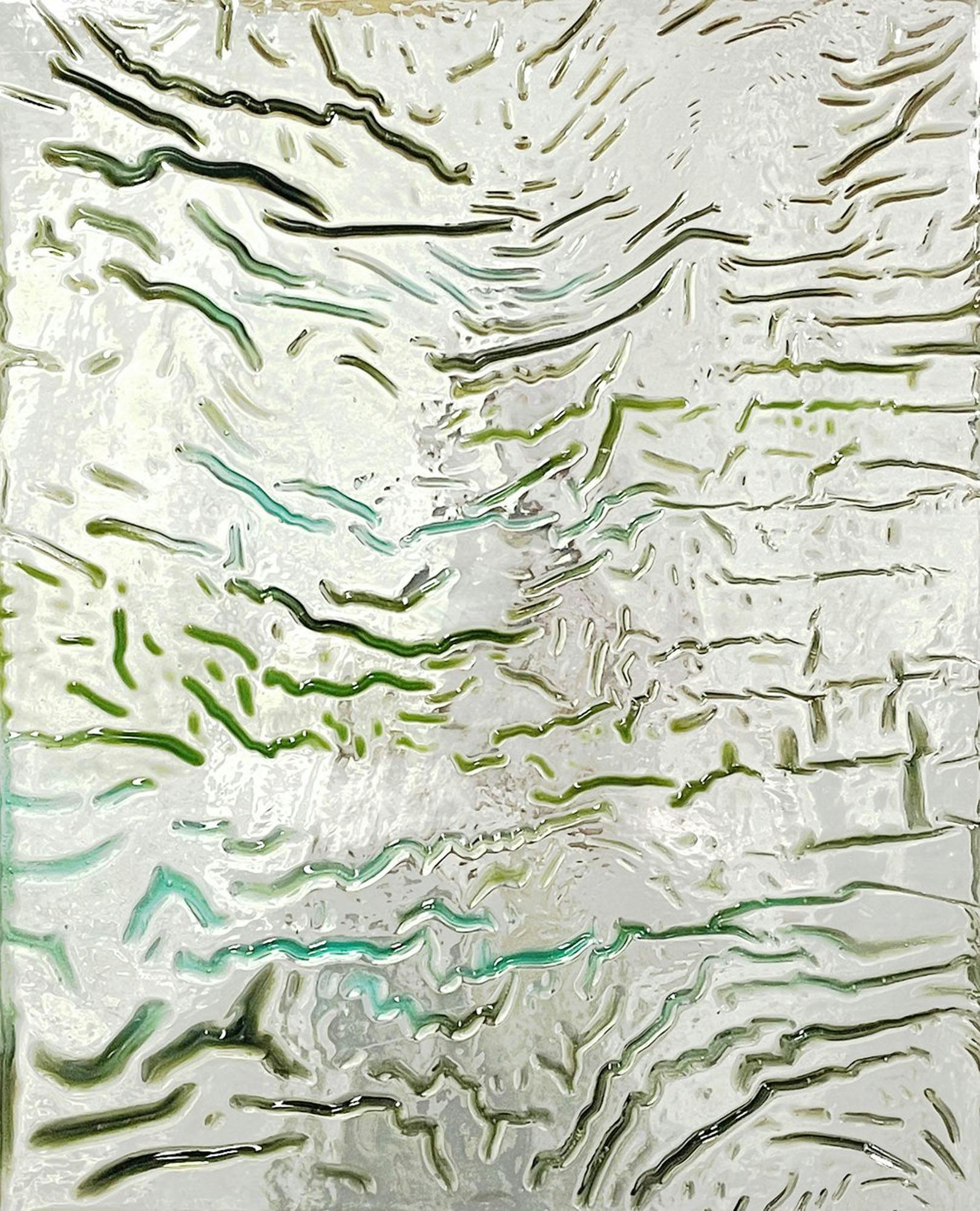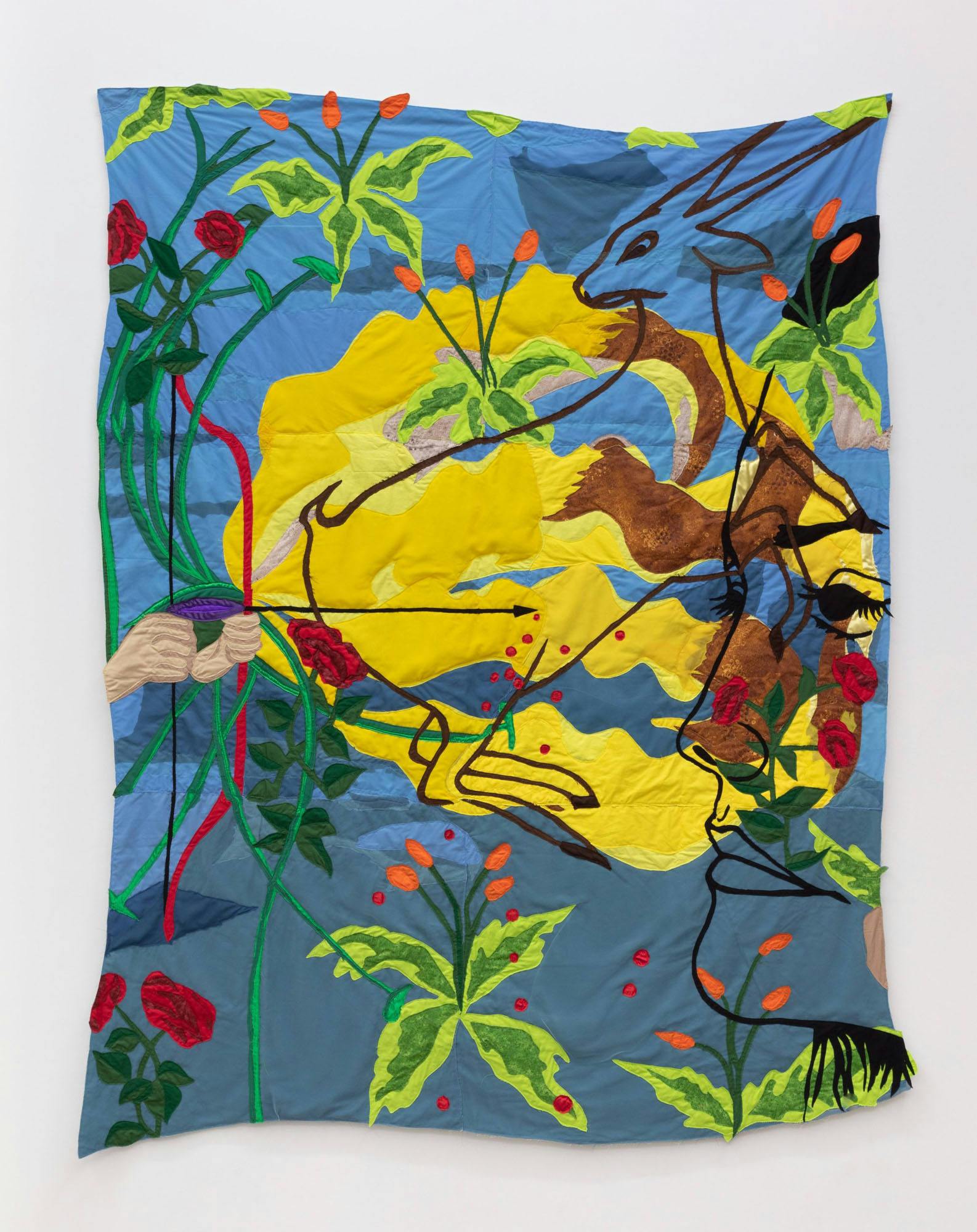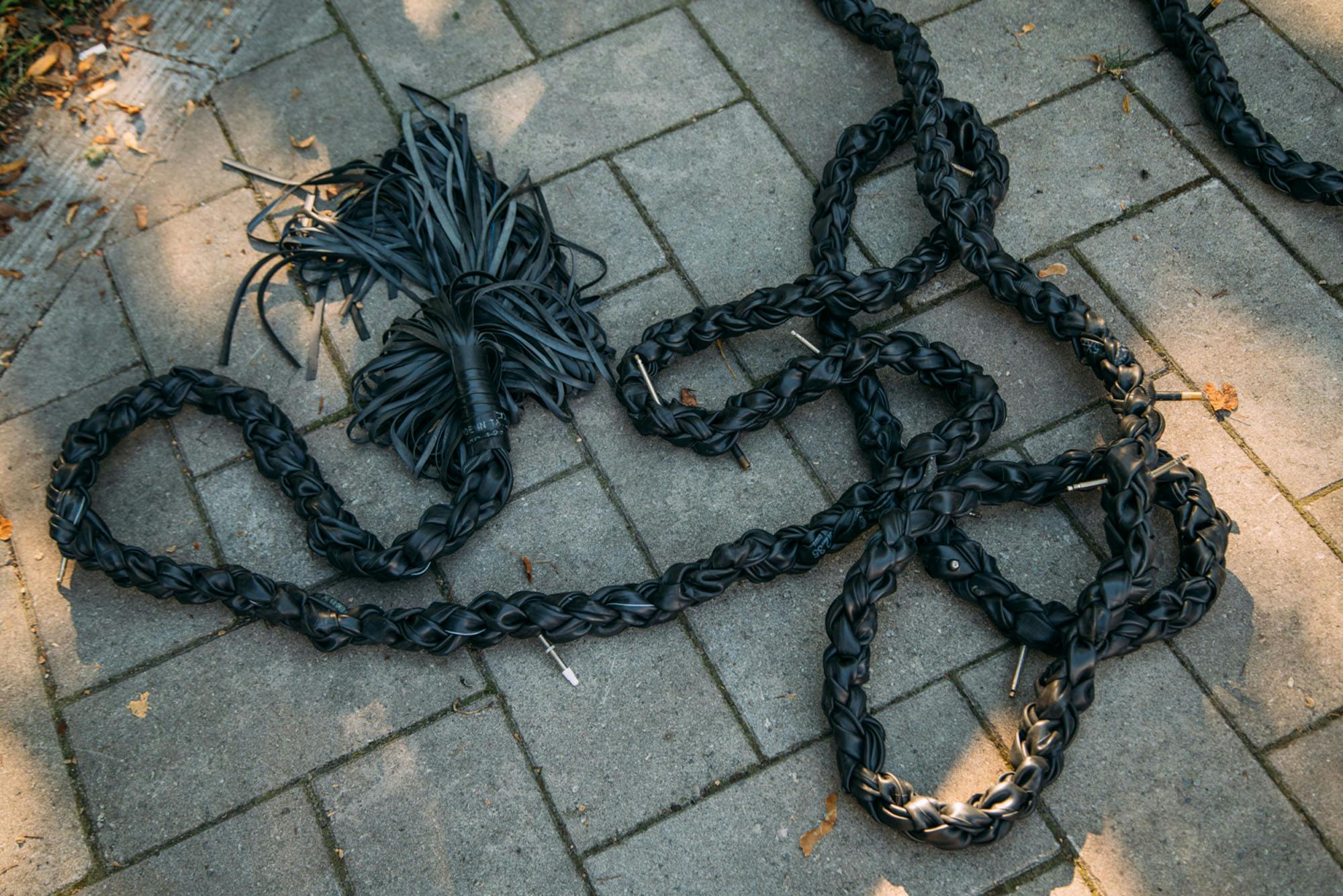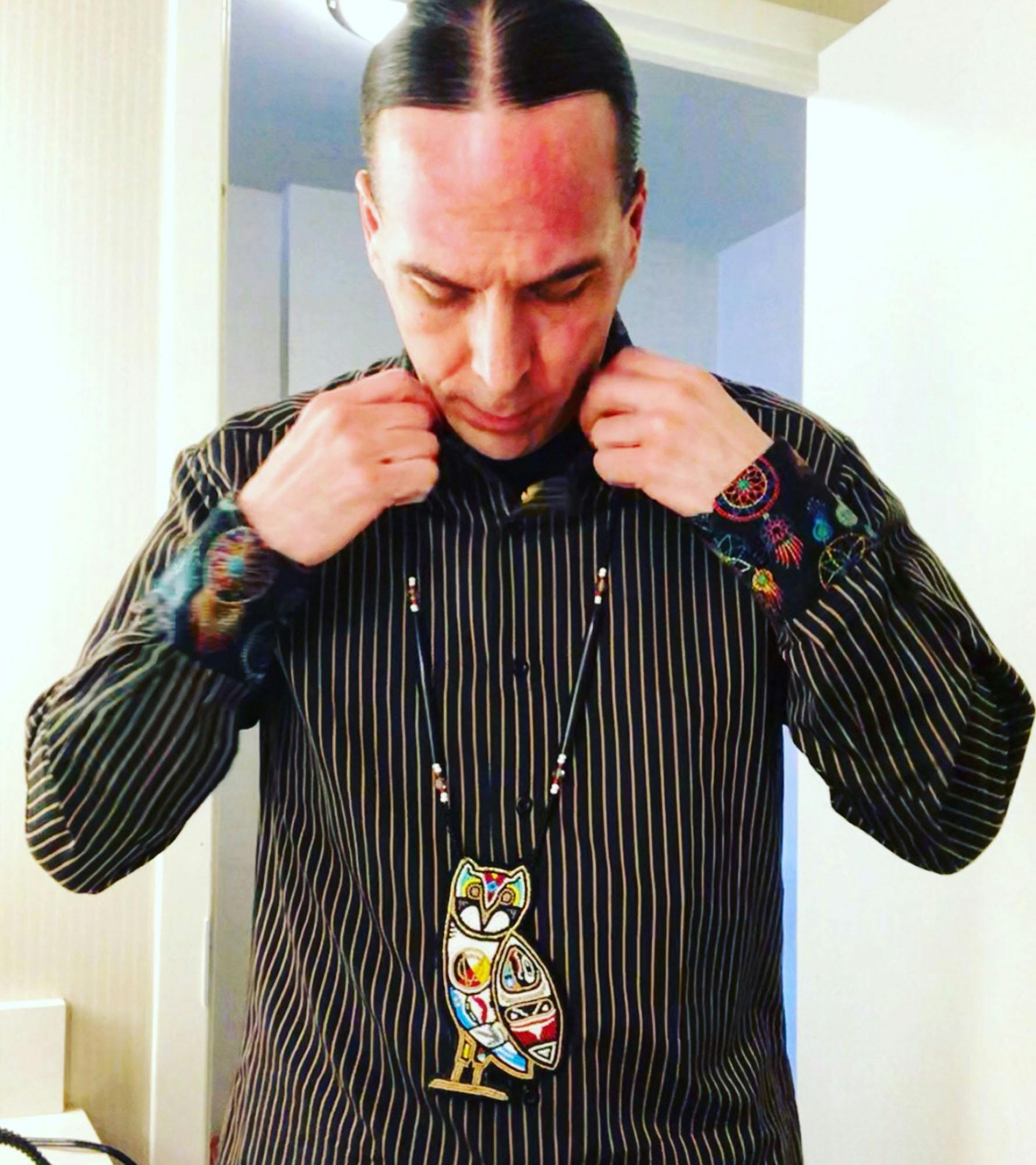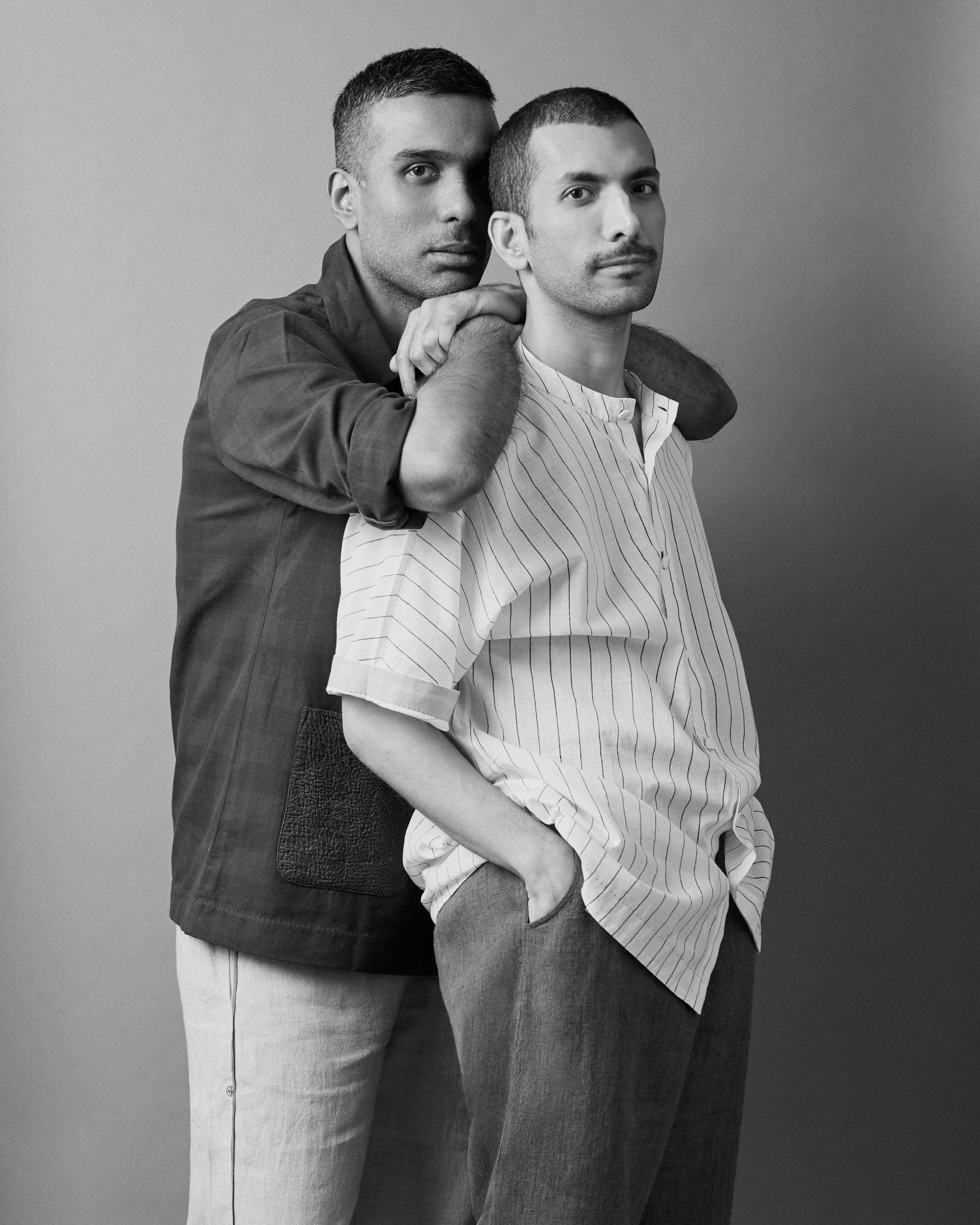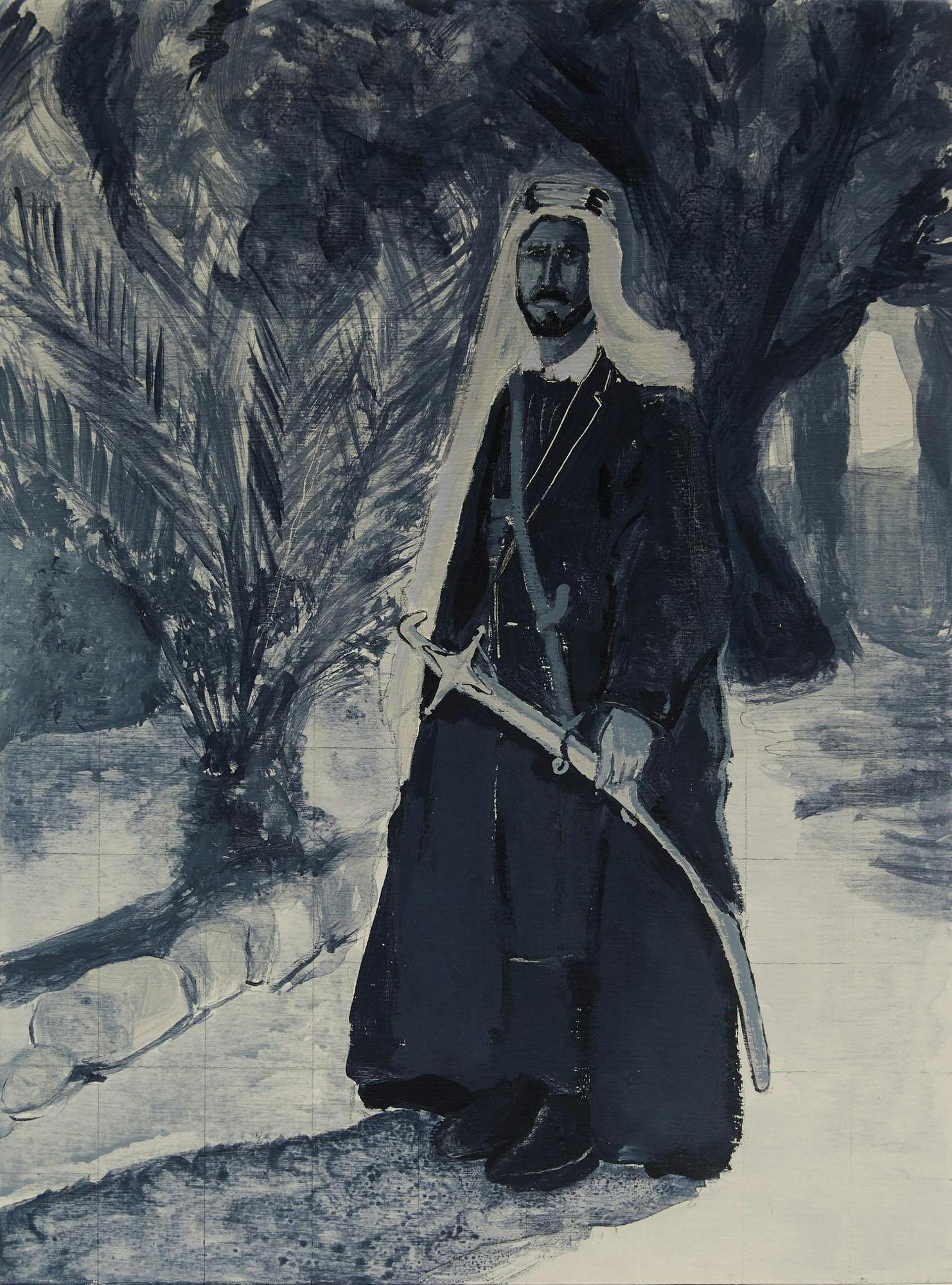
Raji
Your point of view doesn’t come from trauma, but from reclamation of certain historical atrocities that are unclaimed in political documents and records. Has that always been the case for you?
Manuel
Growing up in an environment where I was exposed to certain things, I built a cocoon around myself, so I could function. That mental space gave me the capacity to have distance from what was happening, to affect a deeper analysis and I use that mechanism in my work.
I can talk about the dictatorship and how it affects my life without obscuring certain parts, because it’s disturbing. It allows me to get closer to certain things.
That distance allows me to cultivate a nuanced environment in a rich gray area.
Raji
Through this process, what are you trying to get closer to?
Manuel
Both extremes, the core of the trauma itself and the core of a certain kind of peace.
I’m trying to get closer to the trauma because you want to know what pains you.
That’s where the contradiction comes in, because I’m not trying to get closer to one and leave the other one behind.


Raji
I remember from our earlier conversation, you mentioned that memory is not an emotion, that it’s a tool for you. How do you decouple the two of those coming from the trauma of dictatorship and dominion, in your pursuit of peace?
Manuel
Memories as an emotion are a tool for me, something I use to access certain things. Sometimes I have to protect myself from the heaviness and affect a didactic point of view, but the consequences of unreality are the same, the facts still happened.
Talking to certain people that lived through the dictatorship gave me insight, and a grounded emotional understanding of the fear, as opposed to a concept addressed at a point of remove and isolation.
Raji
That makes more sense to me. You enter different points of history and put events together in your art.
Manuel
I wrote a text, where I’m talking about the delusion of power in the Gagosian quarterly. I started out writing poetry, but a good friend of mine who’s a writer, confronted me, wanting to know why I was hiding behind these words, the analysis. He was right, I had to go to the areas I’m not comfortable with, and find something relevant, something personal.
It took a lot out of me, being called out and forced to go deeper. I had to sit with certain things that were precious to me, thoughts and sentiments I was keeping away from the world, and own them.
The concept of writing for me is difficult, I know what I want to say, but can I say it in a way that is readable, digestible? In painting, you don’t have to worry about that. Composition may be the closest to digestibility, but there’s more leeway and room to play. With writing, there’s nowhere to hide. Thankfully, I had a good bastard, who was hard on me, and is Jewish on top of it, so there was a deep understanding of trauma. We’re very close friends, so I’ve learned things about him in the process of writing that text.
Raji
You mentioned in our last conversation, how memory is not an emotion, it’s a tool. What I’m understanding then is that it is both, but you oscillate between them?
Manuel
We need the full spectrum of the psyche—the right and left brain, we need both to function. Those who only use one side, can be dangerous.
Raji
You enter different points of history, and combine events together in your art, putting them in conversation with one another as a form of healing, rather than how they appear in historical narratives. What is it like for you, as an artist, to offer a different perspective of past events, particularly between recorded history and personal experience?
Manuel
It has to be personal to me. It has to come from a space of urgency, otherwise I don’t go there because it becomes too planned. I have to leave room for things to be a little bit fucked up, a little bit out of hand, because that’s the only moment where I get the chance to discover what’s happening. It started with seeing the dictatorship from a personal viewpoint. My grandfather was a colonel in it, and that changed the destiny of our family forever. After my accident, I really had to sit with that, because it’s a part of who I am, whether I want to embrace it or not. When I realized I had the right distance, I began to go seek things, come back and reorganize them, based on my understanding of the situation. I’m reordering history through my own gates, but from a very personal perspective. In my country, we didn’t have the space to talk about it. I felt a responsibility to do this, knowing everything I say right now can be imprinted in history.
Any scholar can create a presentation around the dictatorship based only on my visuals. I didn’t think about it at the time, but now I understand how art is an important way to preserve these historical moments.
Raji
It’s very much from your own lived experience and the knowledge that’s passed down.
Manuel
The personal oral histories provide a different perspective when you meet people that were directly exposed to it. Stories where someone’s cousin is at Michèle Bennett’s wedding—not something 1,000 miles away, passed through multiple different texts. She played a big role in the end of the dynasty, and if somebody decides to do work around her, they’ll have to dig into all these different layers to understand her legacy. The history’s not taught in a way that people actually understand. That’s what I’m trying to do with the documentary.
I’m trying to pull out all these conversations, because a lot of people made their fortune out of blood—and not five generations ago, literally 30 fucking years ago.
We don’t talk about that in Haiti, because certain people are still in power. I think it’s important for me to approach these things from a cold hearted perspective. These stories need to be told, by any means necessary.
Raji
It’s a powerful position to be in, creating narratives of your own with historical materials that you share with the world. What is the care and how do you audit what you put out there?
Manuel
I can only produce a limited amount of paintings, the way I study history. I find the things that are pivotal, and create a certain thickness that is not otherwise considered. I’m trying to reduce the idea that certain people are special when it comes to human barbary. When it comes to these structures of power, we’re not unique facing death and brutality. I’m used to talking about this in my work, but in real life there are consequences. Two weeks ago on Instagram, I see the granddaughter of Michèle Bennett in Paris, because she goes to the same dancing school as my little sister. That’s where family comes in, when you ask a society to act like everything’s fine, with the descendants of the murderers and the murdered casually hanging out two generations later. It’s extremely complex; it was complex in the past and even more so today. We cannot address these things, or talk about reconciliation, without having these conversations. I was with my dealer for a dinner at this Swedish billionaire’s house, who had connections to Michèle Bennett, and If I started to unpack what she had done to the country, I would have been kicked out immediately. I’m working with one of the biggest galleries in the world right now, so there are a lot of different agendas happening. I started a conversation with the financing of this documentary that might cost me my life, and through my career and the opportunities I’ve been presented with, being valuable to a structure like Gagosian—that might save my life.
At this level, every move I make is either going to be useful or cause my death. I’d rather say certain things when I’m on top of the mountain. If I have to fall from there, it’s fine, but at least what I say will echo in the valley for the time that I’m there.
The next significant five moves I make for my career will determine if I’m going to live five years after that, you understand. It’s not very glamorous, but it is true.
Raji
I appreciate your honesty, but I’m wondering how you grapple with this tremendous power to sway public opinion through a very personal mode of expression. I’ve never asked another artist this question outright before, but with your work addressing the intersection of so many different power structures and political elements, I found that to be especially present in your exhibitions.
Manuel
Yes, that’s why it gets back to that urgency, I’m operating from a space of fate, a space of infinite infinity. Operating from that space can be dangerous, because the energy you’re connecting with is infinite, but we are not. Our actions carry weight in the world, and what you do to or with people becomes exponential within themselves. This is where the infinite comes in, as you trigger things around you. I’m working from a space of faith, and that gives me courage to do certain things.
Whoever put me here gave me a profound sense of clarity, for knowing what needs to get done, and for that I’m very grateful. I know it in my guts.
A lot of people have the power, but they don’t have that direction or knowing. I know what is for me, so operating from that space, everything’s possible.
Raji
You talked about some of your modalities in your art making, how you can reference a photograph, and have that inform your own narrative. How do you visualize and contextualize what’s being raised, knowing the omissions, intentional and otherwise, dealing with national trauma on this scale?
Manuel
I have to accept that I have some limitations with my view of this. I cannot be the one carrying the whole story. I have to accept this is just my contribution. Take the Bible for example. There were 12 apostles, each with a different perspective of the same thing.
I have to act based on my own understanding, otherwise the weight is too big. If I believe I have the responsibility to say everything, the anxiety prevents me from moving forward.

Raji
You frequently access this heavy knowledge in these circles of power and circumstances. How do you make that narrative visible? What’s the process when you’re approaching a blank canvas with a loaded history?
Manuel
I try to understand the relationship between the conceptual aspect of the work and the material aspect of it. I don’t work with emotions in the studio, it’s more like transmission.
Raji
You’re vested with this immense responsibility, recounting history, making history known while also reflecting a Haitian lived experience and trauma. How do you visualize what’s erased intentionally by structures of power?
Manuel
The language of contemporary art and the preservation of my work is not the same in Haiti. Our relationship with time and history is different. I’ve thought about the logistics of doing a show. The site is very important, as we have a big accessibility problem; it’s vertical, not horizontal.
Anyone can go to the British Museum, Haiti lacks the spaces needed to show my work. Even if they did, the attendees would be made up of the people guilty of what I’m trying to reveal.
The person cleaning the car would not be able to enter the space, while the work is
deeply related to him. It’s also not contextualized for him, because generations have been taught this is not for you, starting with the security at the front door. If I accept the show in that context, I’m feeding the problem. That’s before we even get to the content, which is another layer. Instigating those conversations there—they’ll kill my father. It’s not the same level of consequences here, where the Haitian community comes in, cries and goes home. I can talk about Negroland, A Landscape of Desire in Chicago, which is important for me to do there and not in Japan. I was still worried, but thankfully, there were no problems. The pandemic didn’t help, but I think it triggered certain conversations.
Raji
Black people who wander across the colour line into territories of authority that are historically marked to white, that’s become kind of a common event in the past two years, as these white-led, Eurocentric institutions are trying to diversify and reconcile really fast, bringing in more BIPOC representation. Do you identify with that and what does it feel like to be a black artist in this current moment?
Manuel
There are certain opportunities popping up, but it’s very slippery. It’s important to navigate this correctly, because the money and the success smells really good. Coming from a country like Haiti, you know you can get fooled, backstabbed, destroyed. I know this is not a game, nor something to be taken lightly. Whether it’s the champagne, the dinners, my work growing in value, or the collaborations I’m making.
At a certain level, my decisions have a lot of gravity, and I’m very careful about what I do. The President of Haiti was assassinated, not deported.
We’re not valuable, they will shit on us, every mistake we make. I’m aware of the opportunities I get, and I’m aware of how fragile the entire thing is.
Raji
You’ve addressed this in a previous essay and I was wondering what your thoughts were on Frantz Fanon’s triple consciousness?
Manuel
Being able to transcend history in this current moment and speak to future generations lies in visibility. The dictatorship, not only from the point of view of Haiti, is a symptom of a bigger machine.
Many different peoples understand this as there were multiple dictatorships booming around the world at the same time. That’s why these connections are extremely important because the dialogue you have with Fanon is primordial to his own survival.
I’m not yet at that point of thinking, but I’m aware it’s one of the doors I will have to knock on soon. I’m still young though, and I need to secure certain things, before I can open certain doors.

Raji
Do you feel a responsibility to make art that counters the white gaze? Or for the people like the black people, or in this case, even the Haitian people?
Manuel
Personally, I think this mode of thinking is very reductive and arrogant. The audience should never dictate what is happening in the studio. When a work is good, It transcends whatever you are trying to put in it. I’ve learned the hard way that good work transcends whatever you’re trying to infuse. Also, there are different ways to counter the white gaze.
There’s something ironic for me, as a Black man, taking dust from the studio, putting it in silicone and increasing it’s value 20,000 times. I haven’t shared that with others, but I laugh about it to myself, I think it’s fun.
Raji
Regardless of intent, your work is countering narratives of people’s perspectives on Haiti, even within the country. Is it possible to make art for both?
Manuel
For sure. I could make a radio piece or sound piece, and it would reach everybody in Haiti. The question is, is there a culture of understanding that what I’m doing is art or will it sound like propaganda? The reception is so unknown, and it’s a different ballgame for me. I thought of buying a radio station, and associating myself with it as a voice, but it’s airtight. You cannot buy anything, not in Port-au-Prince at least. I can maybe start in different areas. Even this interview has layers of obstacles—the language barrier, needing an internet connection.
It’s why I’m not showing in Haiti anymore. Not until we find a way for the show to be seen by everyone. Where the 1% can be confronted, to go in places where they’re not welcome.
Their life may be in danger, but then it underlines the massive gap in place.
Raji
That’s your input. Can you bring the art to the people?
Manuel
I’d need to cut deals with some gang members in the area, because my life will become a currency. It’s not even about the work at that point. Wanting to put art in a space like that, I will at some point become the value. If I get kidnapped, it’s going to be for real, whether the show is up or not.
I’ll have to create an economy around the exhibition for it to survive, for me and anyone else present that’s connected to the work.
Raji
Manuel
They can become collaborators, but the challenge is what is the sense of impunity? I haven’t yet figured out the year or the key. By that, I mean who do I talk to, for my protection? It’s not the police. I don’t know the language of the ground. As the value of my work grows, a drawing being worth $25,000 now for example, it shifts the parity. The guests are another layer. Funnily enough I’m more afraid of the 1% in Haiti paying to kidnap me because they know the real money at stake, and they have access to the gangs too. So instead of $250K they’re asking for $5 million, and then that’s when I die or somebody pays it and I’m now owned for life. I’m not afraid to go, but I’d rather do something that doesn’t involve my getting kidnapped, or my father killed. After the documentary I will not be able to do this. It won’t even be about kidnapping at that point, I will be killed if I go.
These are the questions I would have to face, which is not standard for most artists, but the power that comes with this level of fate, the quality of my work, the network I’m building, it demands these kinds of reflections.
Sometimes, I feel like a lunatic in my dream of a better world but in that perspective, there are also moments of clarity and guidance that saves me from falling into a world of absurdity.
Raji
Thank you for spending time with me today.
